
OR
#Book Review
Mrityu Diary: A must read book about life and death
Published On: November 9, 2023 10:09 AM NPT By: Padam Bhattarai
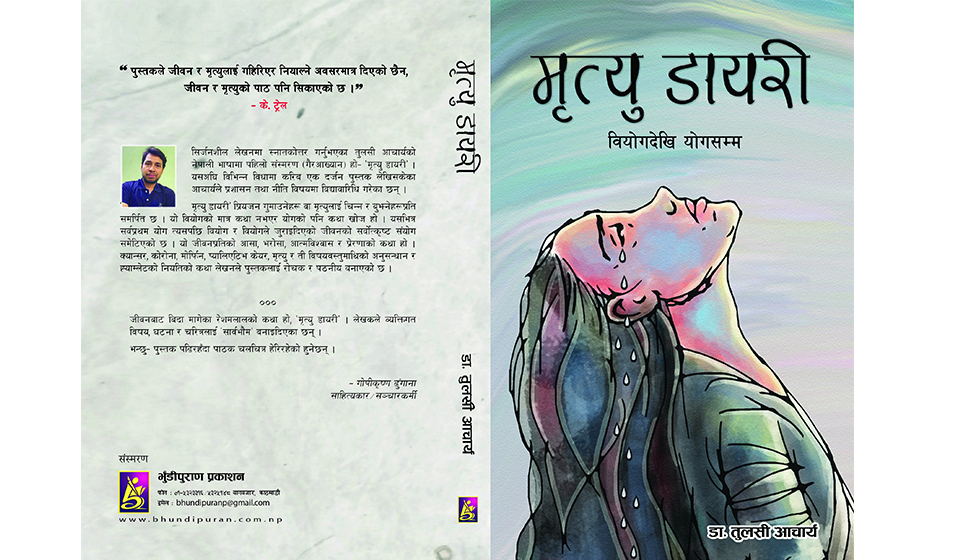
"Mrityu Diary" or the “Death Diary” is a book written by the author Tulasi Acharya, which is currently available in various online markets both in Nepal and abroad. In Nepal, the entire royalty amount obtained from book sales will be used to support cancer patients, and the proceeds from sales abroad are dedicated to cancer or Social Science research at Nexus Institute of Research and Innovation (NIRI). The author has taken the responsibility of social welfare through his writing, and this serves as a notable example of how social work can also be carried out through the medium of writing.
Death is inevitable, and it cannot be avoided. As a person ages, the human body weakens, making it susceptible to various illnesses. Several diseases can take hold due to age, dietary habits, and the consumption of various foods and drinks. These diseases, as they progress, cause suffering, weakness, and ultimately a very challenging encounter with death. The author has written "Death Diary" based on his own experiences, observations, and feelings, chronicling a series of events from life to death.
Profound, mysterious, and terrifying aspects of death are the truth of life, according to many scholars around the world. While there may be various forms and reasons for it, death itself remains a constant. The unexpected death of a family member (in-law) had a profound impact on the author, creating a void and an emptiness in the household that the author has expressed through his writing. The author has demonstrated great restraint in dealing with the pain of family members and the suffering they had to endure due to the unexpected death.
The news of the unexpected death of the author's mother-in-law, who was in another city during the COVID-19 pandemic, and the experiences and emotions the author went through on the journey, are described in detail. The author touches upon the deep struggles of a family member who has been battling a severe illness. The descriptions serve to captivate the readers.
The deteriorating health of the father in law and the doctor's statements, as the author mentioned, are all deeply distressing. The author's writing expresses the dire situation, which can be very painful and challenging, and readers can sympathize with the author's own experience.
In the book, the unexpected death of a loved one and the impact on her family members, including the pain, emptiness, and the possibility of separation, provides readers with a lot to ponder. The author's writing reveals some questions, such as inquiring about the genetic history of a family member's illness, which touches the hearts of the readers. The reader can perhaps relate to their own family experiences when reading about separation and suffering in the book. The book also discusses pain, making it more relatable to the readers, with some sections leaving them teary-eyed and in others hoping that no one has to go through such experiences.
If a person doesn't experience the pain of suffering, what would life be like? If one could alleviate the suffering of others in their family, among friends, and as an optimist, how much comfort would a patient find? If medical science could devise a method to alleviate suffering, perhaps patients could find substantial relief. The author's father-in-law, who had pain measured on a scale of 1 to 10 wonders if he could quantify it in 100. Many illnesses have the same pain that neither can be measured in numbers nor easily expressed in writing. Simple pain can be dulled by medicine. Even extreme pain, though it can be diminished, remains insurmountable. No matter the quantity of pain, it persists, residing in a feeble, frail, and aging body, which cannot be healed or simply endured. As you read the 'Death Diary,' readers will recall the events of death in their own homes, their own villages. Those who suffer, those who have endured such painful separations and losses, wish no one suffers such agony, not even their worst enemy. The form of death, the cause, and the impact it leaves on individuals, families, and their circumstances also differ. However, the loss of a loved one's life or the physical pain they endured leaves a significant scar, one that is indelible.
Birth and death are eternal truths. The destination of birth is death. A person may accept a natural death to some extent, but the pain they cause to their own people remains. The process of the new sprouting from the old is a natural process. Even exceptional phenomena, due to exceptions or human actions, manifest unusual tendencies in the world. Human life, too, is not just a mixture of natural and unnatural tendencies that everyone must accept. Sometimes one has to console a grieving person, while sometimes they have to part with close relations. In such situations, they may even have to bid farewell to their emotions.
The author's extensive study is apparent as one progresses through 'The Death Diary.' International-level poets, authors, and philosophers' statements, thoughts, and quotes on death are used in the book, making it more appealing for readers. A common reader might find it difficult to comprehend such usage, but it certifies the author's scholarly approach. The book doesn't have any significant flaws. However, readers may want to find out more about related characters in the story, as well as the other aspects of the character's life. In this sense, more could have been written, more pages could have been added. As one reads 'The Death Diary' (from divorce to yoga), the title is relevant. The subject of death and the pain it causes are prominent in the book. The study of yoga, on the other hand, might remain unclear even to a non-biased reader.
Lastly, 'The Death Diary' primarily deals with the subject of death. It draws the reader closer to death and suffering. While life and death are eternal truths, life has the potential to celebrate death just as it would be a festival. If medical science, time, and family can make an easy transformation to death, both life and death will be fortunate.
You May Like This
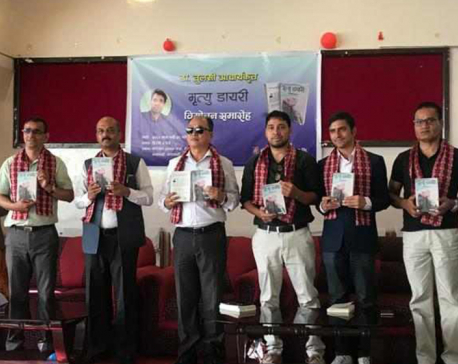
Dr Tulsi Acharya Unveils 'Mrityu Diary,' a thought-provoking literary work
KATHMANDU, Sept 16: A special ceremony held in the capital on Friday saw the official release of Dr. Tulsi Acharya's... Read More...
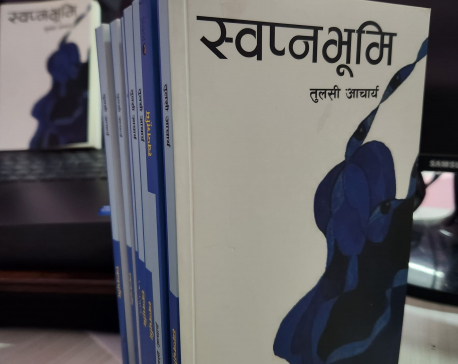
Novel Swapnabhumi launched on Friday
KATHMANDU, Jan 14: The novel Swapnabhumi by Dr Tulasi Acharya, which tells the story of a young man who came... Read More...
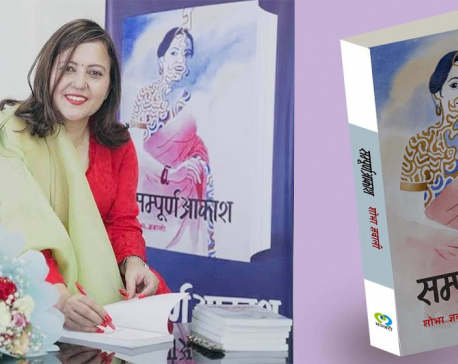
Author Shova Gyawali in ‘A Whole Sky’
Shova’s book is a collection of 25 medium-sized stories. The stories keep readers engaged, draw them into another world, and... Read More...


Just In
- Capital Market Struggle Committee stages protest demanding protection of domestic investors (Photo Feature)
- Captain Paudel scores half-century in T20 match against West Indies 'A'
- Nine youths from Tanahu allegedly joining Russian army out of family contact for months
- West Indies 'A' sets Nepal a target of 205 runs
- Parliamentary committee directs govt to provide electricity tariff subsidies to cold storage facilities
- Former DoTM employee Bhatta arrested in connection with illegal license issuance case
- One killed in a fire incident in Dadeldhura
- JSP Central Executive Committee meeting being held today to discuss national convention representative election guidelines









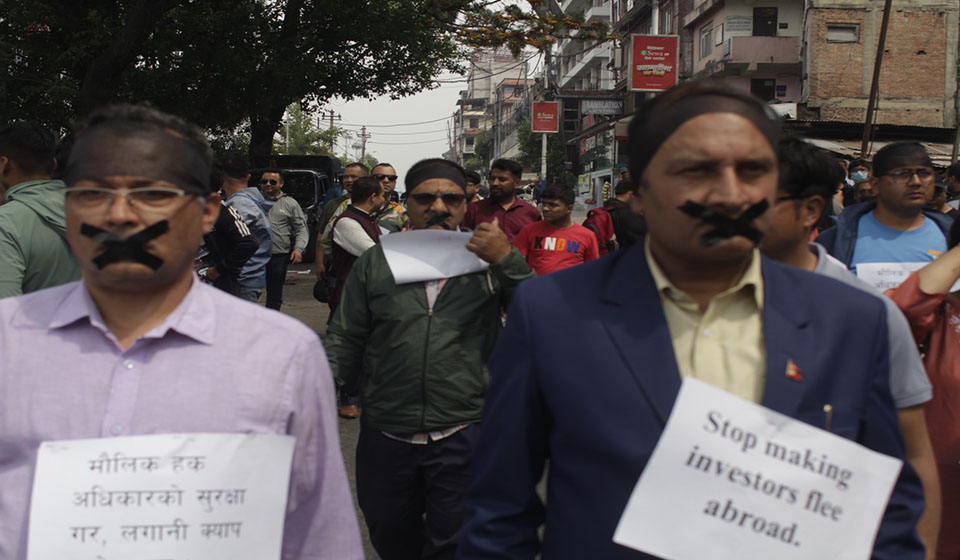
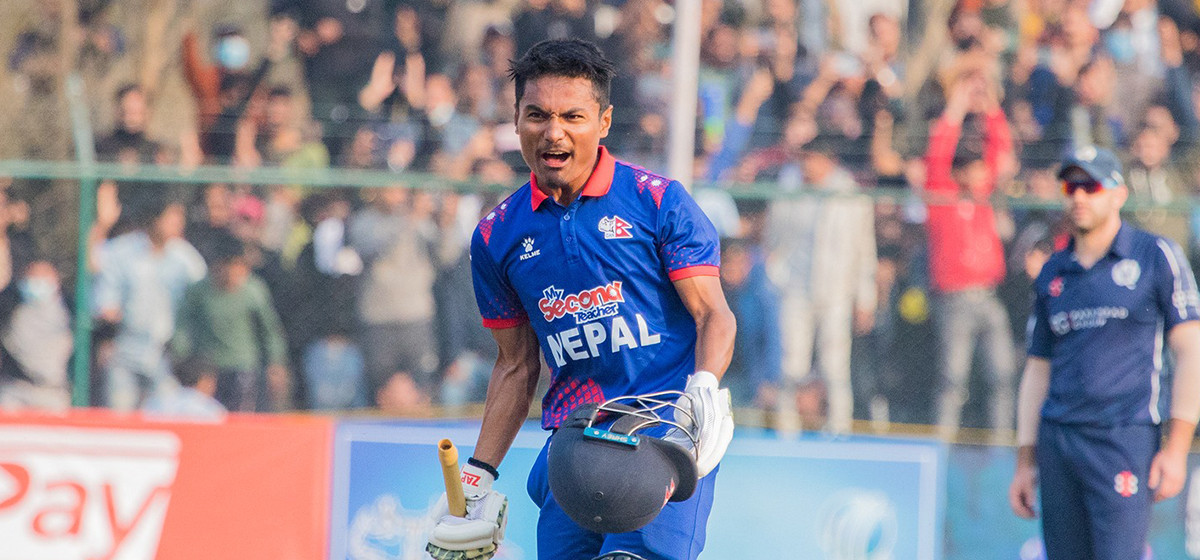


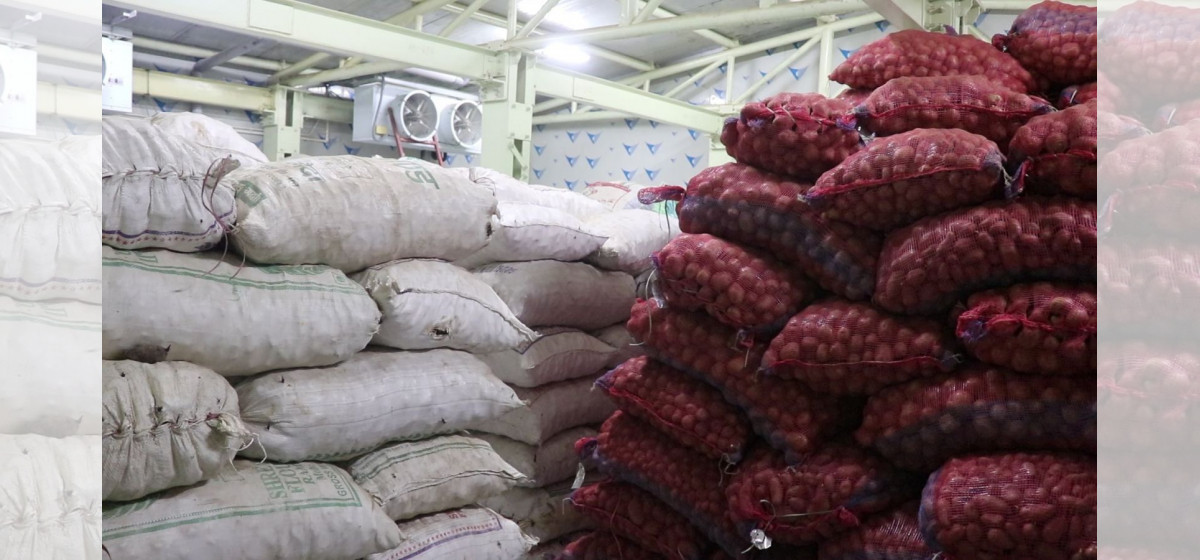
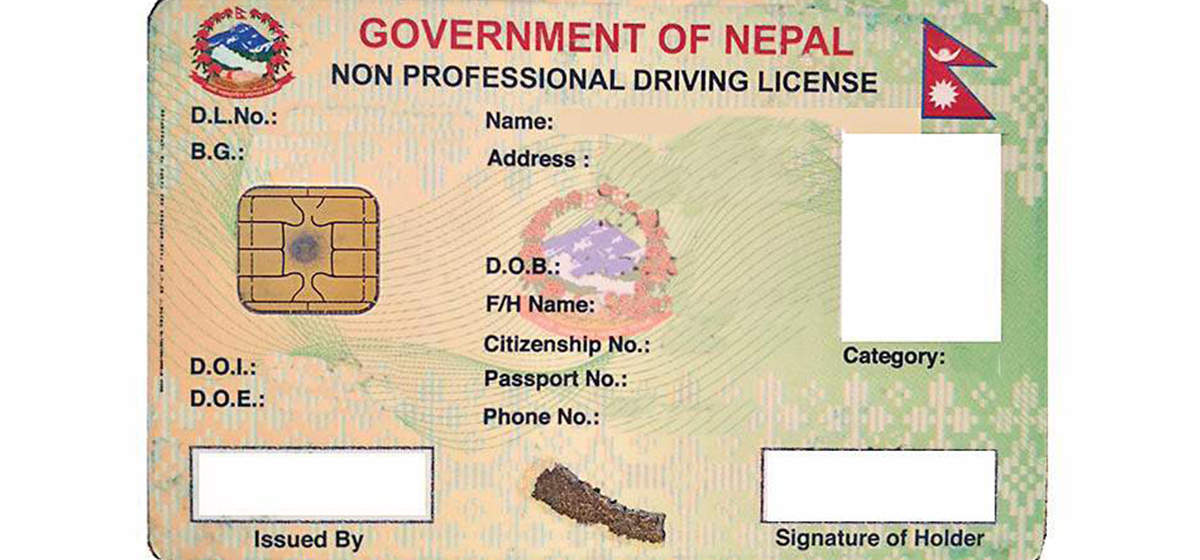

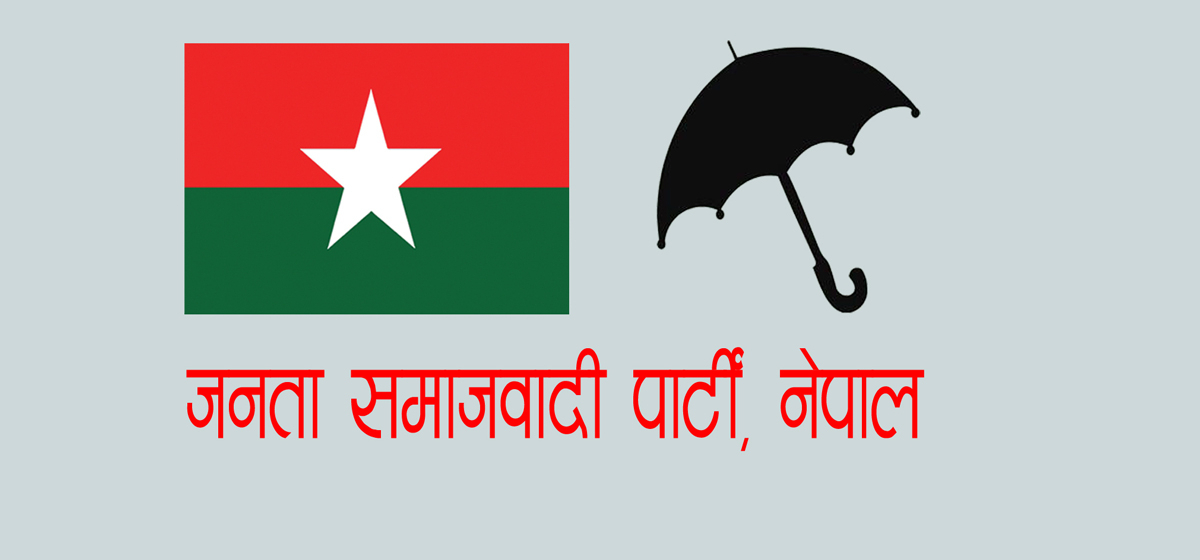
Leave A Comment